|
Books Should Be Free Loyal Books Free Public Domain Audiobooks & eBook Downloads |
|
|
Books Should Be Free Loyal Books Free Public Domain Audiobooks & eBook Downloads |
|
Literature |
|---|
|
Book type:
Sort by:
View by:
|
By: Eleanor Hallowell Abbott (1872-1958) | |
|---|---|
 Little Eve Edgarton
Little Eve Edgarton
Eve Edgarton is not who she seems she is. A short encounter with Mr. Barton show that first impressions are not always right or indicative of one’s seemingly obvious preference or one’s proclivity. | |
By: Elizabeth Gaskell | |
|---|---|
 The Grey Woman
The Grey Woman
A “Bluebeard” story in which a young woman marries a man whom she discovers has killed his previous wives and is trying to kill her as well. | |
 Cranford
Cranford
Cranford is the best-known novel of the 19th century English writer Elizabeth Gaskell. It was first published in 1851 as a serial in the magazine Household Words, which was edited by Charles Dickens. | |
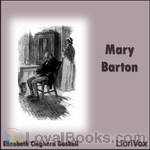 Mary Barton
Mary Barton
Mary Barton is the first novel by English author Elizabeth Gaskell, published in 1848. The story is set in the English city of Manchester during the 1830s and 1840s and deals heavily with the difficulties faced by the Victorian lower class. The novel begins in Manchester, where we are introduced to the Bartons and the Wilsons, two working class families. John Barton reveals himself to be a great questioner of the distribution of wealth and the relation between the rich and the poor. He also relates how his sister-in-law Esther has disappeared after she ran away from home... | |
 Ruth
Ruth
The book is a social novel, dealing with Victorian views about sin and illegitimacy. It is a surprisingly compassionate portrayal of a ‘fallen woman’, a type of person normally outcast from respectable society. The title of the novel refers to the main character Ruth Hilton, an orphaned young seamstress who is seduced and then abandoned by gentleman Henry Bellingham. Ruth, pregnant and alone, is taken in by a minister and his sister. They conceal her single status under the pretence of widowhood in order to protect her child from the social stigma of illegitimacy... | |
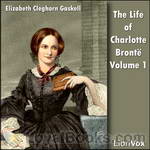 The Life Of Charlotte Brontë
The Life Of Charlotte Brontë
Charlotte Brontë was a British author, the eldest of the three famous Brontë sisters who have become standards of English literature. She is best known for her novel Jane Eyre, one of the greatest classics of all time. Just two years after Charlotte’s death, her friend Elizabeth Gaskell wrote her biography. Want to know more about Charlotte Brontë? If you do, please read this biography. | |
 Sylvia's Lovers
Sylvia's Lovers
The novel begins in the 1790s in the coastal town of Monkshaven. Sylvia Robson lives with her parents on a farm, and is loved by her rather dull Quaker cousin Philip. She, however, meets and falls in love with Charlie Kinraid, a sailor on a whaling vessel, and they become engaged, although few people know of the engagement. But Charlie gets press-ganged and have to leave without a word. | |
 Cousin Phillis
Cousin Phillis
Cousin Phillis (1864) is a novel by Elizabeth Gaskell about Paul Manning, a youth of seventeen who moves to the country and befriends his mother's family and his second cousin Phillis Holman, who is confused by her own placement at the edge of adolescence. Most critics agree that Cousin Phillis is Gaskell's crowning achievement in the short novel. The story is uncomplicated; its virtues are in the manner of its development and telling. | |
 Round the Sofa
Round the Sofa
Round the Sofa (1859), is a book of stories by the lady that Charles Dickens called his “dear Scheherazade” due to her skill as a story teller. That Lady was Mrs. Elizabeth Gaskell (North and South, Wives and Daughters, Cranford etc.). Mrs. Gaskell begins with Round the Sofa, a short story which she uses as a device to stitch together six previously published stories into a single work. It introduces us to a set of characters who take turns to recount stories to one another during their weekly soirée... | |
 My Lady Ludlow
My Lady Ludlow
This novella by the acclaimed Elizabeth Gaskell follows the reminiscences and life of aristocratic Lady Ludlow, told through the eyes of one of her charges, the young Margaret Dawson. Lady Ludlow epitomizes the unwillingness of the old English gentry to accept the progression of social reform and technology, such as education for the poor and religious leniency. She reminisces about her friends in the French revolution and tries to protect and guide the numerous young ladies she has taken under her care. | |
 Dark Night's Work
Dark Night's Work
Love, murder and class commentary in Mrs Gaskell's usual brilliant style! This novel was originally serialised and published by Charles Dickens, with whom Mrs Gaskell had several disagreements. She chose to avoid melodrama and concentrate on psychological realism to produce a moving story of people meeting and parting across class divides. | |
 Moorland Cottage
Moorland Cottage
"Maggie Brown is torn between her mother who constantly tells her to live for her selfish brother (to whom she gives all her love) to her wish to marry Frank and live for herself. Maggie's plight for independence shows the change in women's role, which started to take place during that time. But it also keeps to the tradition of an almost Cinderella story: the pure woman does the best for everyone but herself and is rewarded for that. In addition, this is a very interesting story, written in Gaskell's remarkable style. When you read it, you are transported to another time, and place". | |
By: Elizabeth Inchbald (1753-1821) | |
|---|---|
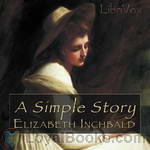 A Simple Story
A Simple Story
The story could really have been simple: Miss Milner, who is admired for her beauty and charm, could have been a socialite, marry a respectable and good looking man and be happy in the standards of her time. But if it was so, why would there be a book? Miss Milner, beautiful and charming as she is, announces her wish to marry her guardian, a catholic priest. But women in the 18th century do not declare their wishes or speak about their passions, and- after all- he is a catholic priest… And if he finds a way to marry her, is this her road to happiness? | |
By: Elizabeth Stuart Phelps (1844-1911) | |
|---|---|
 The Story of Avis
The Story of Avis
Elizabeth Stuart Phelps's 1877 novel is set in a New England college town, and focuses on Avis Dobell, a professor's daughter. Avis is a talented painter, and bucks against the constraints placed on women in the 19th century. She wants to pursue a career as an artist and rejects marriage and motherhood, until she meets the charismatic young professor Philip Ostrander. Phelps's novel is a beautifully-written examination of the conflicts between marriage and career for women that is still relevant today. | |
By: Elizabeth von Arnim (1866-1941) | |
|---|---|
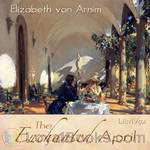 The Enchanted April
The Enchanted April
It’s a dreary February in post-World War I London when Mrs. Wilkins spots an advertisement in The Times for a small Italian castle for rent in April. She sees another member of her women’s club, Mrs. Arbuthnot, reading the same advertisement and manages to convince her that the two of them should rent it. Both are miserable and lonely in their marriages. They can’t afford the cost of the villa, San Salvatore, on their own and must advertise for two others, eventually recruiting an elderly widow named Mrs... | |
 Elizabeth and her German Garden
Elizabeth and her German Garden
Elizabeth and Her German Garden is a novel by Elizabeth von Arnim, first published in 1898; it was very popular and frequently reprinted during the early years of the 20th century. The story is a year's diary written by the protagonist Elizabeth about her experiences learning gardening and interacting with her friends. It includes commentary on the beauty of nature and on society, but is primarily humorous due to Elizabeth's frequent mistakes and her idiosyncratic outlook on life. She looked down upon the frivolous fashions of her time writing "I believe all needlework and dressmaking is of the devil, designed to keep women from study... | |
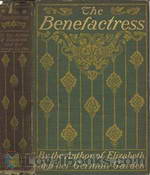 Benefactress
Benefactress
Anna Estcourt, twenty-five and beautiful, is the penniless ward of her distant brother and his exasperating wife. Turning down all offers of marriage, scornful at the thought of leaning on a man for help and comfort, she thinks only of the independence which seems an impossible dream. But out of the blue Uncle Joachim, her mother's brother, leaves her a handsome property in Germany. Her longed for independence is within her grasp, and though it's a rocky beginning with the locals, she loves her new home... | |
By: Ella Hepworth Dixon (1857-1932) | |
|---|---|
 Story of a Modern Woman (Version 2)
Story of a Modern Woman (Version 2)
“The Story of a Modern Woman” is a work of feminist social realism. In its time it was one of the most famous and influential novels to grow out of and shape the “New Woman” movement of the 1890s. It won such attention for its author that Ella Hepworth Dixon was given the nickname “The New Woman.” The story of the novel’s protagonist, Mary Erle, loosely follows the outline of Dixon’s own situation. As the well-educated daughter of a public intellectual, she enters the world of professional writing after his death, partly trading on his name... | |
By: Ella Rodman Church (1831-) | |
|---|---|
 Among the Trees at Elmridge
Among the Trees at Elmridge
"On that bright spring afternoon when three happy, interested children went off to the woods with their governess to take their first lesson in the study of wild flowers, they saw also some other things which made a fresh series of "Elmridge Talks," and these things were found among the trees of the roadside and forest." | |
By: Ella Wheeler Wilcox (1850-1919) | |
|---|---|
 Poems of Optimism
Poems of Optimism
This is a volume of Poems by Ella Wheeler Wilcox. The topic of this volume is "optimism". | |
 Poems of Purpose
Poems of Purpose
This is a volume of poems by Ella Wheeler Wilcox, published in 1919. | |
 Poems of Power
Poems of Power
This is a volume in a series of books of poetry by Ella Wheeler Wilcox. This time, the theme is "Power". | |
 Poems of Sentiment
Poems of Sentiment
This is a volume of poems by Ella Wheeler Wilcox. This time, the topic is "Sentiment". | |
 Kingdom of Love
Kingdom of Love
This is a volume of poetry by Ella Wheeler Wilcox, named after the poem 'the Kingdom of Love'. | |
 Age of the Motored Things
Age of the Motored Things
LibriVox volunteers bring you 13 recordings of The Age of the Motored Things by Ella Wheeler Wilcox.This was the Fortnightly Poetry project for October 6, 2013.Ella Wheeler Wilcox was an American author and poet. Her best-known work was Poems of Passion. Her most enduring work was " Solitude", which contains the lines: "Laugh, and the world laughs with you; Weep, and you weep alone". Her autobiography, The Worlds and I, was published in 1918, a year before her death.A popular poet rather than a literary poet, in her poems she expresses sentiments of cheer and optimism in plainly written, rhyming verse... | |
 True Culture
True Culture
14 recordings of True Culture by Ella Wheeler Wilcox. This was the Weekly Poetry project for December 16, 2012. Ella Wheeler Wilcox was an American author and poet. Her best-known work was Poems of Passion. Her most enduring work was "Solitude", which contains the lines: "Laugh, and the world laughs with you; Weep, and you weep alone". Her autobiography, The Worlds and I, was published in 1918, a year before her death. ( | |
 Poems of Experience
Poems of Experience
This is another volume of Ella Wheeler Wicox's famous series. This time, the topic is Experience. The short play The New Hawaiian Girl is included in this volume. | |
 Cuisine
Cuisine
Ella Wheeler Wilcox was an American author and poet, who was considered a popular poet rather than a literary poet, in her poems she expresses sentiments of cheer and optimism in plainly written, rhyming verse. Her world view is expressed in the title of her poem "Whatever Is—Is Best", suggesting an echo of Alexander Pope's "Whatever is, is right." None of Wilcox's works were included by F. O. Matthiessen in The Oxford Book of American Verse, but Hazel Felleman chose no fewer than fourteen of her poems for Best Loved Poems of the American People, while Martin Gardner selected "The Way Of The World" and "The Winds of Fate" for Best Remembered Poems... | |
By: Ellis Meredith (1865-1955) | |
|---|---|
 The Master-Knot of Human Fate
The Master-Knot of Human Fate
A tale of two people, and their search for answers to unknown questions. Adam and Robin find themselves inexplicably alone after an apparent natural cataclysm, and are compelled to learn how to survive, how to endure, but most importantly to themselves, how to enjoy, understand their new roles in life, and understand each other. (Introduction by Roger Melin) | |
By: Ellis Parker Butler (1869-1937) | |
|---|---|
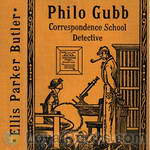 Philo Gubb, Correspondence-School Detective
Philo Gubb, Correspondence-School Detective
Philo Gubb, not being content with his job as wallpaper-hanger, has higher aspirations: to become a detective, just like Sherlock Holmes. To that end, he enrolls in a correspondence course, where he gets lessons through the mail as well as the necessary disguises for a detective. Philo Gubb, not being really clever or intuitive, or even looking good in those disguises, gets involved in one case after the other - and sooner or later happens to stumble on and solve the crime... Each of these stories... | |
 Cheerful Smugglers
Cheerful Smugglers
Saving for the baby's education: how can a young family be disciplined so as to regularly put money in the pig (bank)? Why, put a tariff on all items coming into the house, just like the U.S. Government does/did for items coming into the country! But the devil is in the details; what about taxing items brought in by visitors? Is the housemaid herself a taxable item? What items really are 'necessaries' versus luxuries? When visitors arrive these guests stoop to either 'smuggling' in their luggage items to avoid having to pay up to 30% of the value, or wear only what they came dressed in... | |
By: Émile Gaboriau (1832-1873) | |
|---|---|
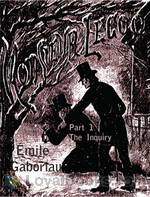 Monsieur Lecoq: The Inquiry
Monsieur Lecoq: The Inquiry
Monsieur Lecoq is a captivating mystery, historical and love story : Around 11 o'clock, on the evening of Shrove Sunday 18.., close to the old Barrière d'Italie, frightful cries, coming from Mother Chupin's drinking-shop, are heard by a party of detectives led by Inspector Gévrol. The squad runs up to it. A triple murder has just been committed. The murderer is caught on the premises. Despite Gévrol's opinion that four scoundrels encountered each other in this vile den, that they began to quarrel, that one of them had a revolver and killed the others, Lecoq, a young police agent, suspects a great mystery... | |
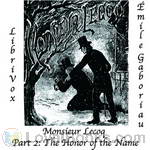 Monsieur Lecoq Part 2: The Honor of the Name
Monsieur Lecoq Part 2: The Honor of the Name
Monsieur Lecoq is a captivating mystery, historical and love story: Around 11 o'clock, on the evening of Shrove Sunday 18.., close to the old Barrière d'Italie, frightful cries, coming from Mother Chupin's drinking-shop, are heard by a party of detectives led by Inspector Gévrol. The squad runs up to it. A triple murder has just been committed. The murderer is caught on the premises. Despite Gévrol's opinion that four scoundrels encountered each other in this vile den, that they began to quarrel, that one of them had a revolver and killed the others, Lecoq, a young police agent, suspects a great mystery... | |
By: Émile Zola (1840-1902) | |
|---|---|
 L'Assommoir
L'Assommoir
Émile François Zola (French pronunciation: [emil zɔˈla]) (2 April 1840 – 29 September 1902) was an influential French writer, the most important exemplar of the literary school of naturalism. More than half of Zola’s novels were part of a set of twenty novels about a family under the Second Empire collectively known as Les Rougon-Macquart. L’Assommoir (1877) is the seventh novel in the series. Usually considered one of Zola’s masterpieces, the novel—a harsh and uncompromising study of alcoholism and poverty in the working-class districts of Paris—was a huge commercial success and established Zola’s fame and reputation throughout France and the world. | |
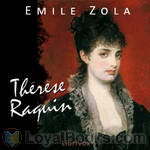 Therese Raquin
Therese Raquin
An unsatisfied wife kills her weak husband in order to carry on a sordid affair with another man. However, her selfish plans are spoiled when her husband continues to haunt her. This is often said to be Zola's first great novel. | |
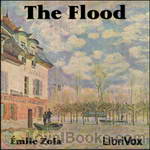 The Flood, trans. by an unknown translator
The Flood, trans. by an unknown translator
A well-to-do French farm family is destroyed by a flood. The story, thrilling to the very end, is told from the point of view of the family’s 70-year-old patriarch. The story speaks of the helplessness of mankind in the face of the forces of nature. | |
 Nana
Nana
Excerpt from Introduction: "Nana" stands third in popularity among the Zola novels. It is a study of the prostitute type and it gives a memorable picture of the life of the tinsel underworld of the Paris theaters, night life, and its parasites. Perhaps Zola pursues Nana a bit too relentlessly: certainly his putting a period to her career by showing her as a putrefying corpse is more symbolic than is wholly necessary; but it remains a novel of truth and beauty, even if a beauty of a drab and often terrible sort. Summary by Burton Rascoe / Celine Major | |
 Germinal (English)
Germinal (English)
This epic about French coal miners and the burgeoning labor movement is considered one of Zola's finest novels. - Summary by Matt Pierard | |
By: Emily Dickinson | |
|---|---|
 Poems: Series One
Poems: Series One
Renowned poet Emily Dickinson (1830 – 1886) wrote many many poems. This collection, “Poems: Series One”, presents the first installment of the complete poetic works of Miss Emily Dickinson. It is broken into four parts: Life, Love, Nature, and Time and Eternity. The verses of Emily Dickinson belong emphatically to what Emerson long since called “the Poetry of the Portfolio,”–something produced absolutely without the thought of publication, and solely by way of expression of the writer’s own mind. The poetry found here is then entirely honest, and indicative of the authors true feelings. | |
 Poems: Series Two
Poems: Series Two
"The eagerness with which the first volume of Emily Dickinson's poems has been read shows very clearly that all our alleged modern artificiality does not prevent a prompt appreciation of the qualities of directness and simplicity in approaching the greatest themes,—life and love and death. That "irresistible needle-touch," as one of her best critics has called it, piercing at once the very core of a thought, has found a response as wide and sympathetic as it has been unexpected even to those who knew best her compelling power. This second volume, while open to the same criticism as to form with its predecessor, shows also the same shining beauties." | |
By: Emily Eden | |
|---|---|
 The Semi-Detached House
The Semi-Detached House
If you're a Jane Austen fan, you'll enjoy Emily Eden's comic novels of manners, The Semi-Detached House (1859) and The Semi-Attached Couple (1860). At the opening of The Semi-Detached House, the beautiful (but rather petulant) Lady Blanche Chester, newly married and pregnant, is being installed in a suburban house while her husband is away. Her encounters with her neighbors, and the intrigues of the neighborhood, soon come to absorb and annoy her. | |
By: Emma Orczy (1865-1947) | |
|---|---|
 The League of the Scarlet Pimpernel
The League of the Scarlet Pimpernel
Written by Baroness Orczy and first published in 1919, The League of the Scarlet Pimpernel is a sequel book to the classic adventure tale, The Scarlet Pimpernel. The book consists of eleven short stories about Sir Percy Blakeney’s exploits in rescuing various aristos and French citizens from the clutches of the guillotine. The stories which are listed below, are set in 1793 but appear in no particular order. They occasionally refer to events in other books in the series. | |
By: Emma Wolf (1865-1932) | |
|---|---|
 Other Things Being Equal
Other Things Being Equal
Ruth Levice, the daughter of a rich San Francisco Jewish merchant, meats Dr. Herbert Kemp, and they slowly fall in love. However, she is Jewish and he is not. Can love overcome such an obstacle? And what is more important, duty or love? | |
By: Ernest Bramah (1868-1942) | |
|---|---|
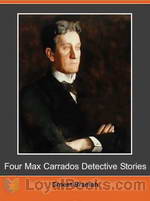 Four Max Carrados Detective Stories
Four Max Carrados Detective Stories
Ernest Bramah is mainly known for his ‘Kai Lung’ books – Dorothy L Sayers often used quotes from them for her chapter headings. In his lifetime however he was equally well known for his detective stories. Since Sherlock Holmes we have had French detectives, Belgian detectives, aristocratic detectives, royal detectives, ecclesiastical detectives, drunken detectives and even a (very) few quite normal happily married detectives. Max Carrados was however probably the first blind detective. | |
 Wallet of Kai Lung
Wallet of Kai Lung
The Wallet of Kai Lung is a collection of fantasy stories by Ernest Bramah, all but the last of which feature Kai Lung, an itinerant story-teller of ancient China. The collection's importance in the history of fantasy literature was recognized by the anthologization of two of its tales in the celebrated Ballantine Adult Fantasy Series. | |
By: Ernest Hemingway (1899-1961) | |
|---|---|
 Three Stories & Ten Poems
Three Stories & Ten Poems
The author arranged for this collection of three short stories and ten poems to be printed in a small run of 300 copies in Dijon The book entered into the public domain in 2019. - Summary by KevinS | |
 In Our Time
In Our Time
This is the first edition of Hemingway's in our time, published in a very small run in France in 1924. And American edition was released the following year. There are 18 brief short stories---one might say vignettes---that demonstrate the author's early interests and his increasingly iconic literary style. - Summary by KevinS | |
 Sun Also Rises
Sun Also Rises
The Sun Also Rises was Hemingway's first novel to be published, though there is his novella The Torrents of Spring which was published earlier in the same year. The novel describes, expressed through the voice of Jake Barnes, a short period of social life that ranges from Paris to locations in Spain. One might say that the action occurs in Pamplona, Spain with the annual festival of San Fermin and its running of bulls and subsequent days of bullfights, but one can easily argue that the real interest of the novel is in its portrayal of the group to which Barnes is a part and how he details their anxieties, frailties, hopes, and frustrations. | |
By: Ernest Poole (1880-1950) | |
|---|---|
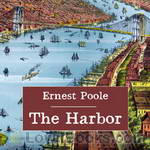 The Harbor
The Harbor
The Harbor was written in 1915 by Ernest Poole. The novel is considered by many to be one of Poole’s best efforts even though his book, The Family won a Pulitzer Prize. The Harbor is a fictional account of life on a Brooklyn waterfront through the eyes of Billy as he is growing up. The novel starts with Billy the child, living on the harbor with his father, mother, and sister, Sue. During this time he also meets Eleanor who, at that time, he considers to be strange. She later becomes an important character in the novel... | |
 His Family
His Family
The 1910s is historically considered the decade of greatest social change in history. It saw the advent and proliferation of the automobile, electricity, lighting, radio, telephone and cinema. Our present time of change is actually quite tame in comparison, though also breathless. His Family is a tale of a widowed father, working to manage this decade of change as it affects his family in New York City. His Family was the first winner of the Pulitzer Prize for literature in 1919. | |
By: Ernest William Hornung (1866-1921) | |
|---|---|
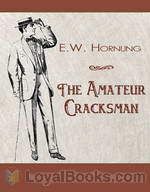 The Amateur Cracksman
The Amateur Cracksman
“I’d tasted blood, and it was all over with me. Why should I work when I could steal? Why settle down to some humdrum uncongenial billet, when excitement, romance, danger and a decent living were all going begging together” – A. J. Raffles, The Ides of March. | |
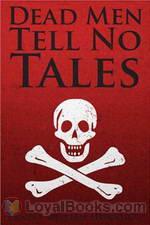 Dead Men Tell No Tales
Dead Men Tell No Tales
Ernest William Hornung (June 7, 1866 – March 22, 1921) was an English author. Hornung was the third son of John Peter Hornung, a Hungarian, and was born in Middlesbrough. He was educated at Uppingham during some of the later years of its great headmaster, Edward Thring. He spent most of his life in England and France, but in 1884 left for Australia and stayed for two years where he working as a tutor at Mossgiel station. Although his Australian experience had been so short, it coloured most of his literary work from A Bride from the Bush published in 1899, to Old Offenders and a few Old Scores, which appeared after his death... | |
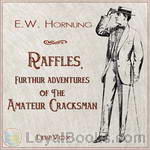 Raffles, Further Adventures of the Amateur Cracksman
Raffles, Further Adventures of the Amateur Cracksman
Raffles, Further Adventures of the Amateur Cracksman (also published as The Black Mask) is the second collection of stories in the Raffles series. After the dark turn of events at the end of The Gift of the Emperor, Bunny’s done his time and, his life not being quite what it was before, now finds himself longing for the companionship of his Raffles. | |
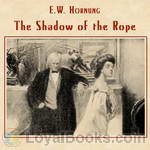 The Shadow of the Rope
The Shadow of the Rope
Rachel Minchin stands in the dock, accused of murdering the dissolute husband she was preparing to leave. The trial is sensational, and public opinion vehemently and almost universally against her. When the jury astonishes and outrages the world with a vedict of Not Guilty, Rachel quickly finds herself in need of protection. It comes in the form of a surprising offer of marriage from a mysterious stranger who has sat through every day of her trial. The marriage to this intriguing stranger, Mr. Steel, is by mutual agreement to be a platonic one, the only condition of which is that neither is ever to question the other about the past... | |
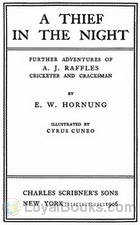 A Thief in the Night
A Thief in the Night
Gentleman thief A.J. Raffles burgles his way through a series of homes in late Victorian England. A Thief in the Night is a short story collection and Hornung's third book in the Raffles series. | |
 Mr. Justice Raffles
Mr. Justice Raffles
A. J. Raffles is a British gentleman thief of some renown who, in this, the hero's final adventure, ironically demonstrates a sense of morality by teaching a London East End loan shark a lesson. The book was later made into a movie, as well as a British television series. | |
By: Erskine Childers (1870-1922) | |
|---|---|
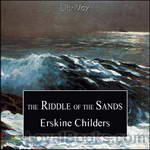 The Riddle of the Sands
The Riddle of the Sands
Containing many realistic details based on Childers’ own sailing trips along the German North Sea coast, the book is the retelling of a yachting expedition in the early 20th century combined with an adventurous spy story. It was one of the early invasion novels which predicted war with Germany and called for British preparedness. The plot involves the uncovering of secret German preparations for an invasion of the United Kingdom. It is often called the first modern spy novel, although others are as well, it was certainly very influential in the genre and for its time... | |
By: Ethel Sybil Turner | |
|---|---|
 Seven Little Australians
Seven Little Australians
This is the story of seven incorrigible children living near Sydney in the 1880’s with their military-man father, and a stepmother who is scarcely older than the oldest child of the family. A favourite amongst generations of children for over a century, this story tells of the cheeky exploits of Meg, Pip, Judy, Bunty, Nell, Baby, and The General (who is the real baby of the family), as well as providing a fascinating insight into Australian family life in a bygone era. | |
By: Eugene Field (1850-1895) | |
|---|---|
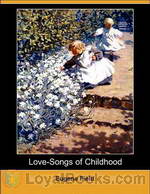 Love-Songs of Childhood
Love-Songs of Childhood
If you've heard and loved that delightful nursery rhyme/lullaby, Wynken Blynken and Nod you'd certainly enjoy browsing through its creator Eugene Field's Love Songs of Childhood. The volume contains some forty or more poems for children, which are ideal for read aloud sessions with young folks. Parents will certainly enjoy reading them too. Most of these poems have been set to music and are ideal for family sing-alongs too. Eugene Field was a gifted humorist as well as being a talented children's writer... | |
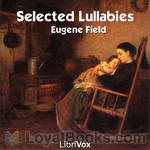 Selected Lullabies
Selected Lullabies
The sweetest songs the world has ever heard are the lullabies that have been crooned above its cradles. The music of Beethoven and Mozart, of Mendelssohn and Schumann may perish, but so long as mothers sing their babies to sleep the melody of cradle lullabies will remain. Of all English and American writers the one who sang most often and most exquisitely these cradle songs was Eugene Field, the children’s poet. His verses not only have charm as poetry, but a distinct song quality and a naive fancy that is both childlike and appealing... | |